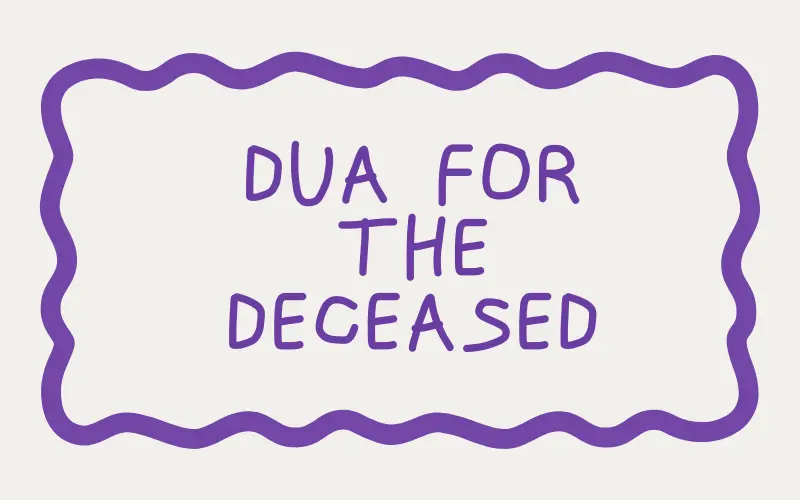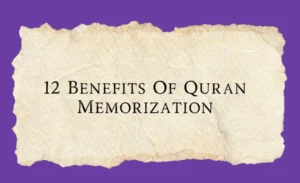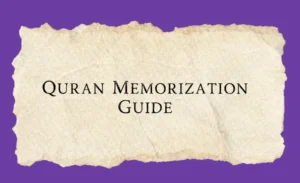Death is an inevitable part of life, and in Islam, remembering and praying for the deceased is a virtuous act that benefits both the living and the dead. The Prophet Muhammad (peace be upon him) encouraged Muslims to regularly make dua (supplication) for those who have passed away. This guide provides a detailed overview of authentic duas for the deceased, including Arabic text, English transliteration, and translation. It also covers the spiritual importance and etiquette of offering these prayers for a global audience.
1. Importance of Making Dua for the Deceased
In Islamic belief, the soul continues its journey after death. A righteous dua from a living believer can be a source of mercy and forgiveness for the deceased. As narrated in the hadith:
“When a person dies, all their deeds end except three: a continuing charity, beneficial knowledge, or a righteous child who prays for them.” – [Sahih Muslim]
This underlines the importance of continuing to remember our loved ones in our prayers.
Making dua for the deceased holds a profound place in Islamic teachings because it reflects the ongoing bond between the living and those who have passed away. Islam teaches that death is not the end, but a transition to the Hereafter, where the soul awaits its final judgment.
The supplications of loved ones, family, and the wider Muslim community can ease the hardships of the grave, bring forgiveness, and elevate the status of the deceased in the eyes of Allah. As mentioned in numerous hadiths, including the authentic narration from Sahih Muslim, the deeds of a person cease after death except for three: ongoing charity, beneficial knowledge, and a righteous child who prays for them.
Thus, making dua becomes a continuous act of charity and mercy that benefits the departed soul. Moreover, it reminds the living of their own mortality and encourages compassion, humility, and connection within the Muslim ummah. Ultimately, dua for the deceased is a beautiful manifestation of faith, hope, and love that transcends time and space.
2. Most Common Duas for the Deceased
Here are the most widely recited duas:
a) Dua for General Forgiveness
Arabic: اللَّهُمَّ اغْفِرْ لَهُ وَارْحَمْهُ وَعَافِهِ وَاعْفُ عَنْهُ
Transliteration: Allahumma ighfir lahu, warhamhu, wa ‘aafihi, wa’fu ‘anhu
Translation: O Allah, forgive him, have mercy on him, grant him peace and pardon him.
b) Dua for All Deceased Muslims
Arabic: اللَّهُمَّ اغْفِرْ لِلْمُؤْمِنِينَ وَالْمُؤْمِنَاتِ وَالْمُسْلِمِينَ وَالْمُسْلِمَاتِ، الأَحْيَاءِ مِنْهُمْ وَالأَمْوَاتِ
Transliteration: Allahumma ighfir lil-mu’minina wal-mu’minat, wal-muslimina wal-muslimat, al-ahyaa’i minhum wal-amwaat
Translation: O Allah, forgive all the believing men and women, and the Muslim men and women, the living and the deceased.
c) Comprehensive Funeral Dua
Arabic: اللَّهُمَّ اغْفِرْ لَهُ وَارْفَعْ دَرَجَتَهُ فِي الْمَهْدِيِّينَ، وَاخْلُفْهُ فِي عَقِبِهِ فِي الْغَابِرِينَ
Transliteration: Allahumma ighfir lahu warfa’ darajatahu fil-mahdiyyeen, wakhlufhu fee ‘aqibihi fil-ghaabireen
Translation: O Allah, forgive him and elevate his rank among the rightly guided, and replace him in his descendants with those who remain.
3. Dua When Visiting the Graveyard
Arabic: السَّلَامُ عَلَيْكُمْ أَهْلَ الدِّيَارِ مِنَ الْمُؤْمِنِينَ وَالْمُسْلِمِينَ، وَإِنَّا إِنْ شَاءَ اللَّهُ بِكُمْ لَاحِقُونَ
Transliteration: As-salamu ‘alaykum ahla ad-diyari minal-mu’minina wal-muslimeen, wa inna in shaa Allahu bikum laahiqoon
Translation: Peace be upon you, O dwellers of these abodes from among the believers and Muslims. Indeed, we are, Allah willing, soon to join you.
4. Etiquettes of Making Dua for the Dead
In Islam, the sincerity of the heart is central to any act of worship, and this holds especially true when making dua for the deceased. Observing proper etiquette enhances the spiritual weight of your supplication.
First, it is recommended to be in a state of wudu (ablution) and to face the Qiblah, showing humility and reverence. Raising the hands while making dua is a Sunnah gesture that reflects devotion. Begin by praising Allah and sending salawat (blessings) upon the Prophet Muhammad ﷺ, then make your dua with a soft and humble tone. Mention the name of the deceased if known, and pray for their forgiveness, mercy, and elevation in the Hereafter.
It’s also a virtuous act to include all believing men and women in your supplication, showing a spirit of unity and brotherhood. Avoid rushing or reciting mechanically, true dua flows from a heart filled with compassion and faith. Lastly, it is good to have hope in Allah’s mercy, trusting that He listens and answers every heartfelt prayer.
5. Making Dua in Different Situations
In Islam, the beauty of dua lies in its flexibility, it can be made at any time and in any place. Different moments throughout a Muslim’s life present special opportunities to remember the deceased with sincere supplication. For example, making dua immediately after hearing of someone’s death is encouraged as a means of sending instant mercy upon their soul.
During the Janazah (funeral) prayer, specific invocations are recited asking Allah to forgive and elevate the deceased. At the grave site, the Prophet ﷺ recommended offering peace and praying for those buried. Many Muslims also choose Fridays, Ramadan, the Day of Arafah, and Laylatul Qadr as spiritually powerful times to make dua, believing these moments hold greater chances of acceptance.
Additionally, simply remembering a loved one during quiet moments, before sleep, after salah, or when visiting places that remind you of them, is a heartfelt way to maintain a spiritual bond. No time is too small or insignificant; every sincere dua has the potential to benefit the departed.
6. Can You Make Dua in Your Own Language?
Absolutely. While Arabic is the traditional language of Islamic supplication, Islam recognizes the diversity of its followers around the world. You can make dua in your own language, especially if it helps you express your emotions more sincerely. What matters most in the sight of Allah is the intention (niyyah) and sincerity behind your prayer.
If you are unable to remember or pronounce Arabic duas correctly, praying in your native tongue ensures your connection with Allah remains heartfelt and meaningful. Many scholars agree that supplicating in one’s own language is perfectly acceptable, particularly outside of formal prayers (salah). The sincerity of your heart is what matters most. You can make heartfelt prayers in your native language.
7. Additional Recommended Duas
Here are some additional dua (prayers) you can recite:
a) Dua for Protection from Hellfire
Arabic: اللَّهُمَّ أَجِرْهُ مِنْ عَذَابِ النَّارِ
Transliteration: Allahumma ajirhu min ‘adhabin naar
Translation: O Allah, protect him from the punishment of the Fire.
b) Dua for the Grave to Be Spacious
Arabic: اللَّهُمَّ اجْعَلْ قَبْرَهُ رَوْضَةً مِنْ رِيَاضِ الْجَنَّةِ
Transliteration: Allahumma aj‘al qabrahu rawdatan min riyadhil-jannah
Translation: O Allah, make his grave a garden from the gardens of Paradise.
Supplicating for the Dead: A Lifelong Sunnah
Making dua for the deceased is one of the noblest and most compassionate acts in Islam. It reflects love, care, and belief in the Hereafter. Whether it’s for a family member, friend, or a fellow believer, every sincere supplication reaches the soul of the departed and elevates their status in the afterlife. Let us make it a habit to pray for our deceased loved ones and contribute to their peace and salvation.






